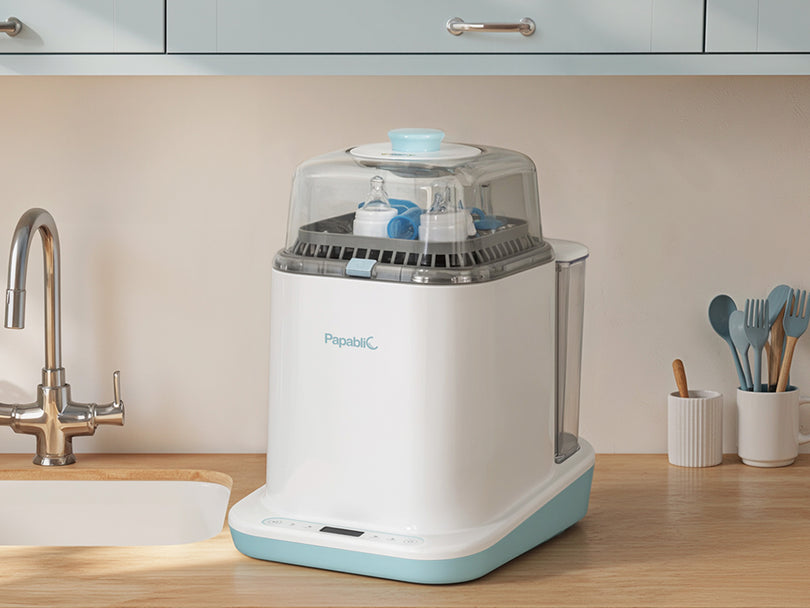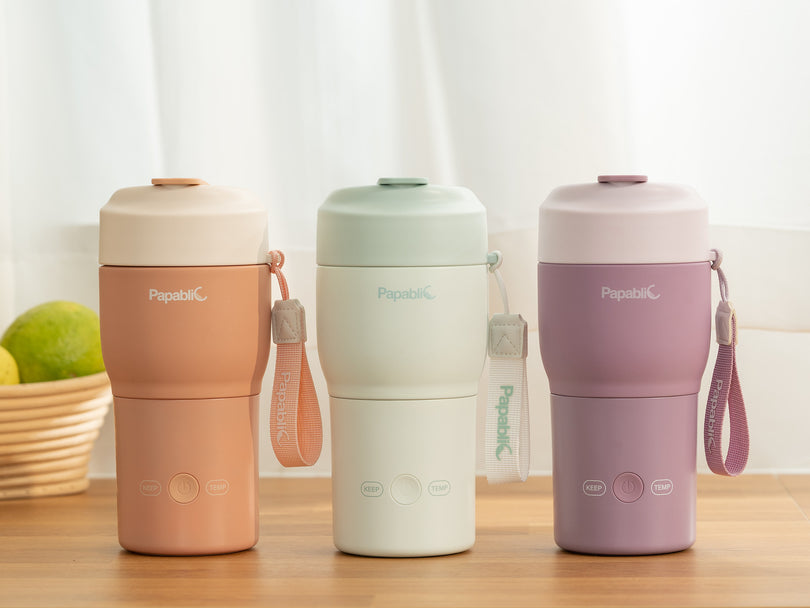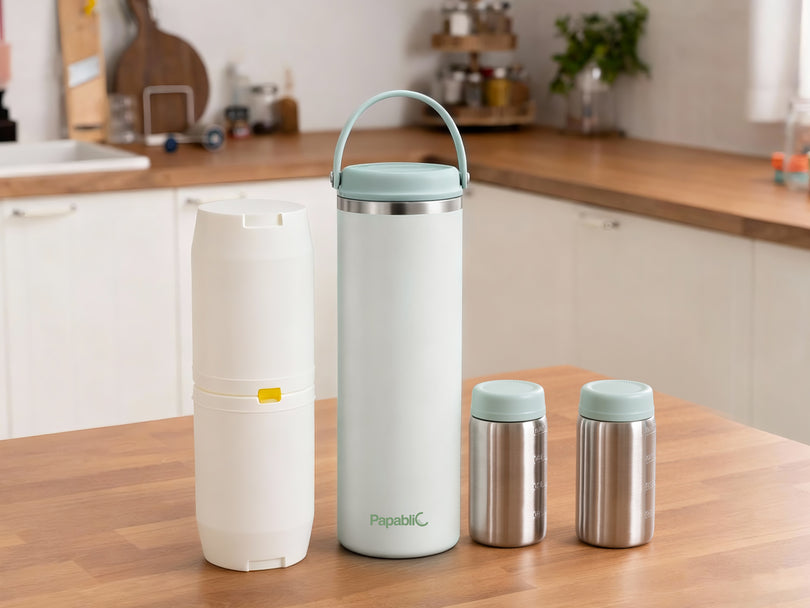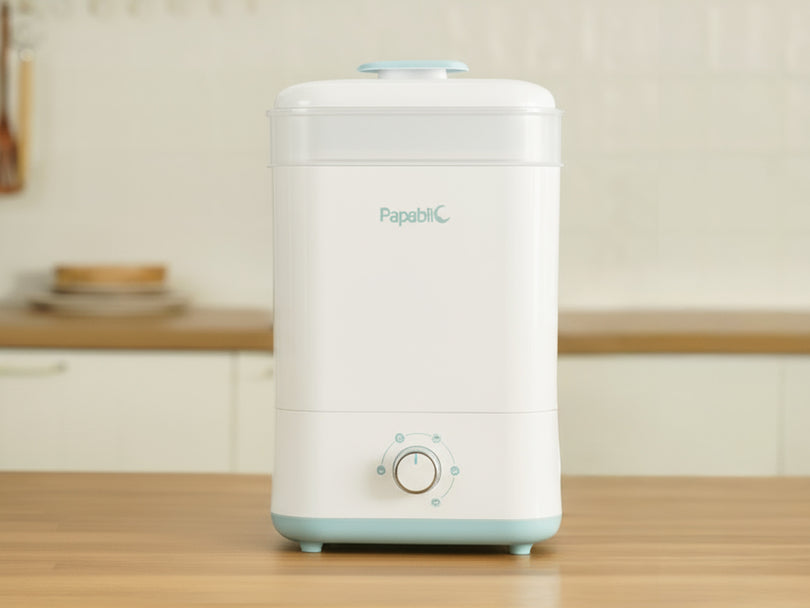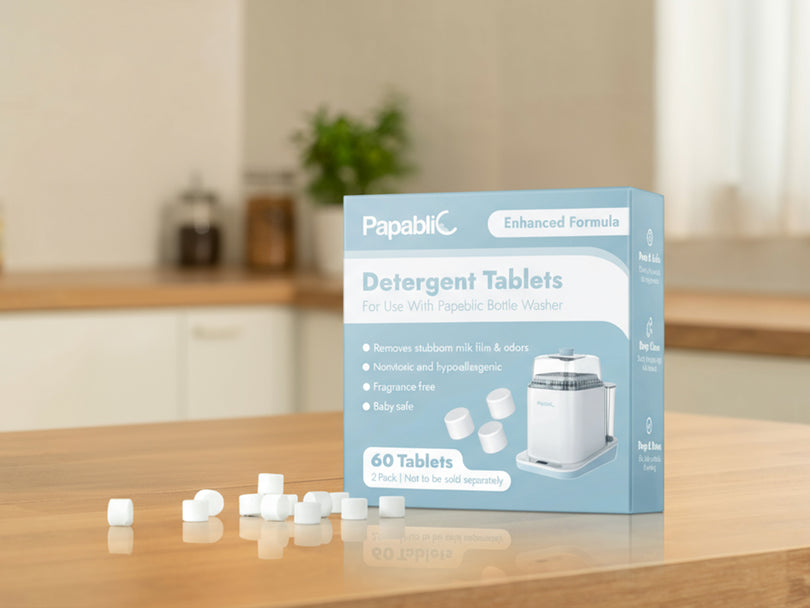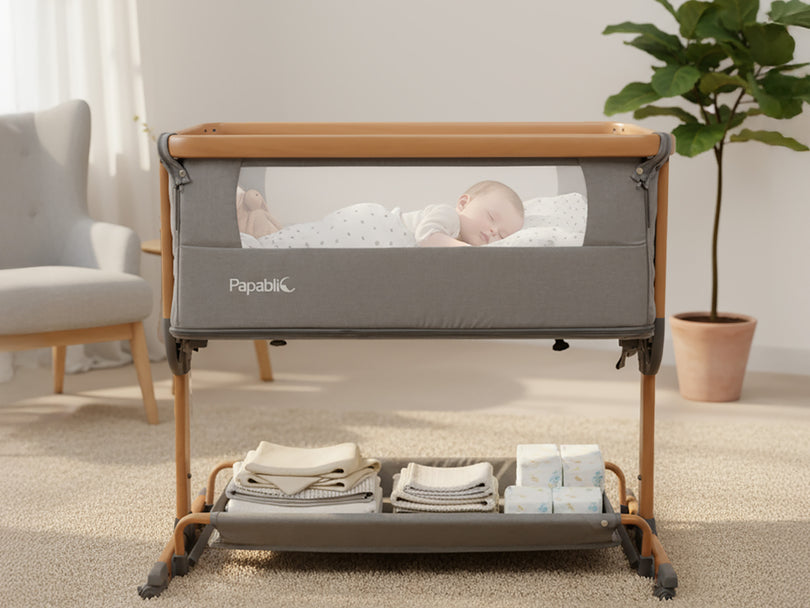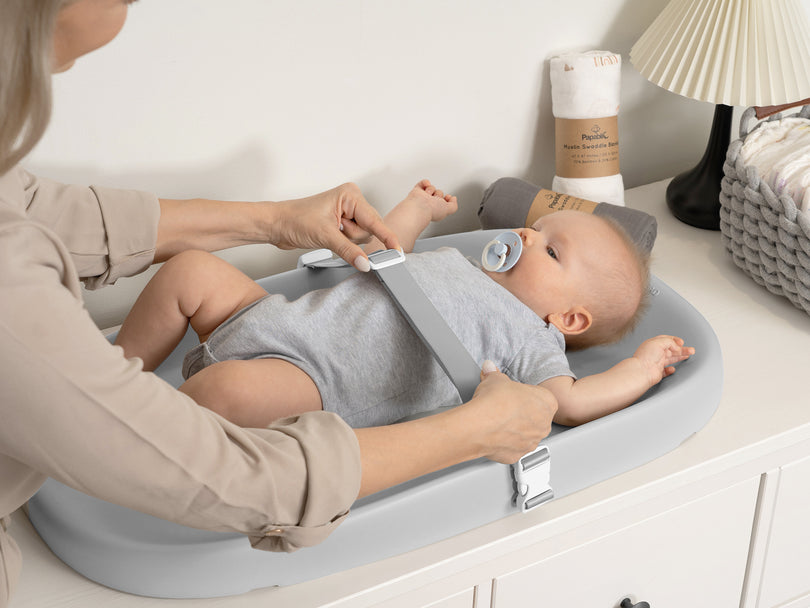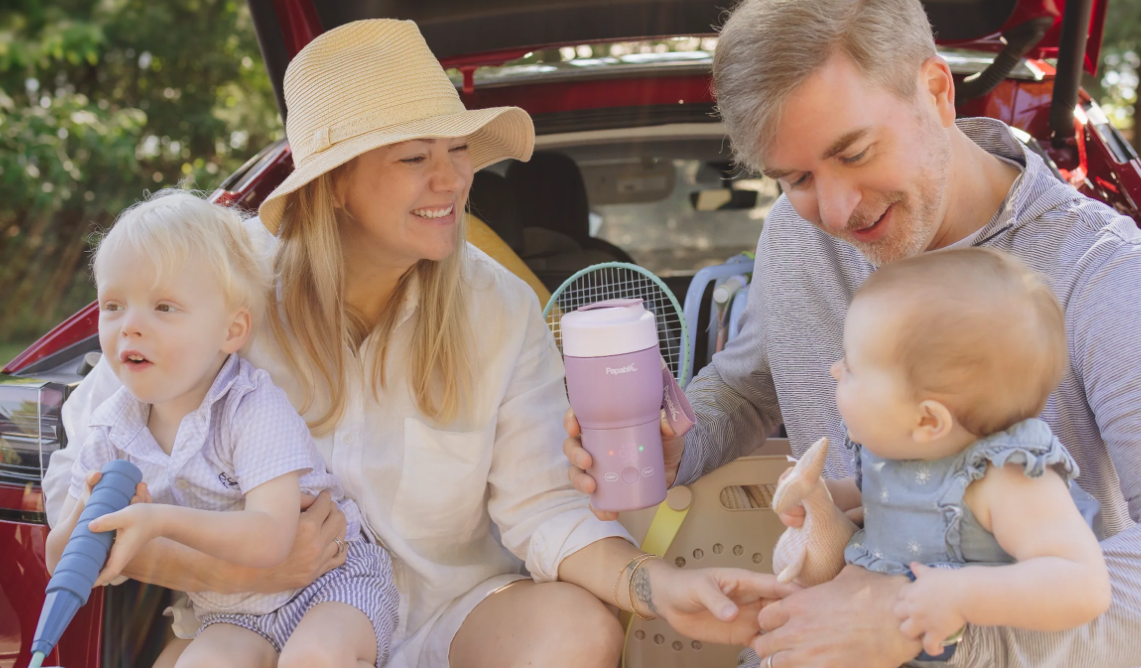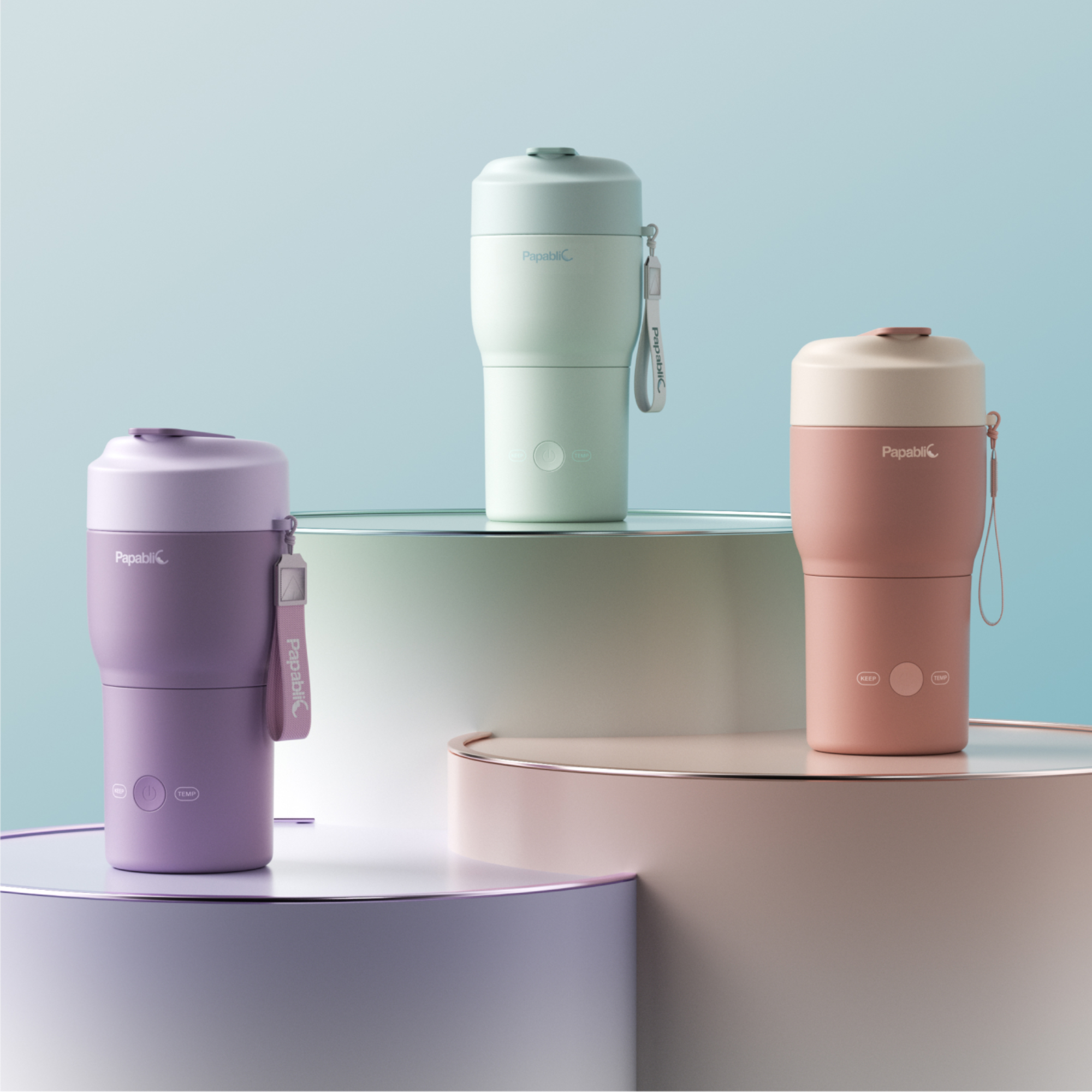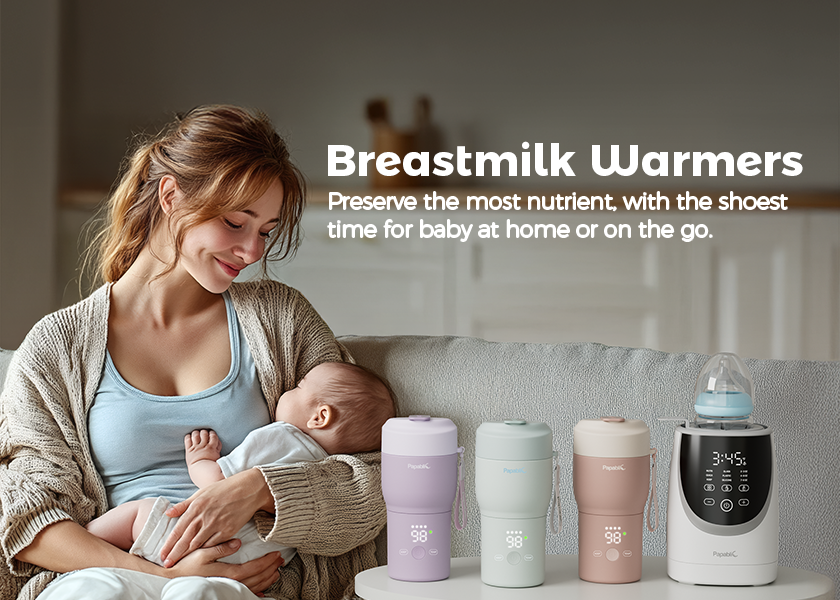A crying baby is a challenge, but a wailing baby in public can feel like a full-blown crisis. The pressure of being in a café, a supermarket, or on a crowded bus with a distraught infant can quickly turn a simple errand into a source of immense stress. Your heart pounds, you feel the stares, and all you want is to find a way to soothe your little one. For many moms, especially when venturing out alone with their baby, this pressure can heighten anxiety and even make them hesitant to leave the house. The good news is, with some preparation and the right mindset, you can ease that worry and feel more in control.
This guide is designed to help you navigate this all-too-common situation with confidence and calm. We’ll explore the reasons behind your baby's cries, offer immediate soothing techniques, and provide practical advice to make public outings a more manageable experience for both you and your baby.
Understand Why Your Baby Is Crying
Before you can soothe your baby, it's essential to understand that crying is their primary form of communication. They are simply trying to tell you something. When you're in a new environment, a baby's cries can be a response to a wide range of factors they can't articulate.
The most common reasons for crying, especially when you're out and about, include:
-
Hunger: This is often the first thing to check.
-
Discomfort: This could be a wet nappy, clothes that are too tight or hot, or a need to be burped.
-
Overstimulation: Bright lights, loud noises, and crowds can be overwhelming for a baby's developing senses.
-
Tiredness: A baby who's missed their nap or is fighting sleep can become fussy.
-
Loneliness or Fear: Your baby may feel insecure in a new environment and just want to be held close.
By mentally running through these possibilities, you can quickly narrow down the cause and take the right action.
Check and Meet Basic Needs
Your first step is always to address the most likely causes of distress. Taking a moment to check on your baby's core needs can often stop the crying immediately.
Hunger:
Find a quiet, discreet spot to feed your baby. If you’re bottle-feeding, a portable solution is essential. The Papablic Portable Bottle Warmer & Sterilizer On the Go Pro can heat 4 ounces (about 117 ml) of chilled breast milk to the perfect temperature in just 2.5 minutes—about 30% faster than other portable bottle warmers. It also kills 99.9% of bacteria, including E. coli and Staphylococcus, ensuring a warm, safe, and comfortable feeding for your baby wherever you are—no need to search for a microwave or hot water at a café.
Its compact design fits easily into a diaper bag or car cup holder, making it ideal for busy parents. The 3200mAh long-lasting battery can heat 6–8 bottles on a single charge, and the USB-C fast charging takes less than two hours. This makes it perfect for outings, allowing you to handle hunger-related fussiness quickly and conveniently.

Nappy Check
A wet or soiled nappy is one of the most common reasons for sudden fussiness. Always make it a habit to check your baby’s nappy when they cry in public. If a changing station is available, use it for a quick and comfortable change. When one isn’t nearby, carrying a portable changing mat and a small pack of wipes ensures you can handle the situation anywhere. A fresh, clean nappy not only restores your baby’s comfort but also helps prevent rashes and keeps outings more pleasant for both of you.
Comfort
Look for signs of discomfort. Is a tag scratching them? Are their clothes too tight or too warm for the environment? A simple adjustment can make a big difference.
Burping and Digestion
After feeding, if your baby hasn’t burped, trapped air in the stomach can make them feel bloated and uncomfortable, often leading to crying. While outside, try to find a quiet corner to gently pat your baby’s back, helping release the gas and preventing prolonged fussiness.
Environmental Needs
Sometimes, your baby’s basic needs are met, but overstimulation from the surroundings can trigger distress. Bright lights, noise, or crowded spaces can overwhelm them. Moving to a quieter spot or using a light blanket to shield them from excessive stimuli can help your baby feel safer and calmer.

Immediate Soothing Techniques
Once you've addressed their basic needs, you can move on to soothing techniques that help calm and reassure your baby.
The "5 S's":
This is a popular method for a reason. Swaddle (if your baby is young enough), hold them on their side or stomach, make a shushing sound (shush), swing them gently, and give them something to suck on (a dummy or your clean finger). These actions mimic the sensations they felt in the womb.
Hold and Walk:
The combination of close physical contact and gentle motion is incredibly effective. Walk around, sway from side to side, or rock them in your arms.
Change of Scenery:
Sometimes, what your baby needs is a break from the noise. Stepping outside, finding a quiet corner, or going to a less crowded area can help reset their overwhelmed senses.
Singing or Talking:
Your voice is the most familiar and comforting sound to your baby. Sing a lullaby or simply talk to them in a calm, low tone.
Advice for New Parents Handling Babies Outside
Advice for New Parents Handling Babies Outside
Preparing for a public outing can save you from a lot of stress. Here are some essential tips to help you feel more confident and in control when you leave the house with your baby.
Plan for Public Outings
Before heading out, think about your destination. Does it have a changing station? Is there a quiet space for feeding? Knowing these things in advance can ease anxiety. Also, try to plan around your baby's nap and feeding schedule to avoid dealing with a tired or hungry baby in public.
Dress Your Baby Comfortably
Choose breathable, soft clothing that is easy to adjust. Dressing your baby in layers is especially helpful in unpredictable weather, as you can quickly add or remove layers to maintain the right temperature.
Keep Calm and Reassuring
Babies are highly sensitive to their parents’ emotions. If you stay calm and composed, your baby is more likely to feel reassured. Take a deep breath and remind yourself: crying is completely normal and not a reflection of your parenting.
Share Responsibilities Between Parents
If you’re going out as a family, share the load. Dads can step in to hold, comfort, or even change the baby, giving moms a much-needed breather. Not only does this lighten the pressure on one parent, but it also helps strengthen the bond between baby and both caregivers.
Be Prepared for the Unexpected
Pack a well-stocked “go-bag” with newborn essentials: nappies, wipes, a spare outfit, a dummy, and a portable bottle warmer sterilizer. Being prepared makes you feel more capable and helps you handle surprises with confidence, whether it’s a leaky nappy or a sudden hunger cry.
Tip: Many mothers worry that their baby crying in public will “bother others” or make them feel embarrassed. This is a very normal kind of pressure. Remember, almost every parent has been through the same experience. By preparing ahead—bringing the right supplies and choosing the right time—you can reduce much of this anxiety. And most importantly, remind yourself: your baby’s cry is not your failure, it’s simply their way of communicating. You’re already doing your best.
Summary
A baby's cries in public can feel overwhelming, but they don't have to define your outing. By understanding that crying is a form of communication and by being prepared, you can approach the situation with confidence. Prioritise checking basic needs, use soothing techniques, and remember that your calm presence is your baby's biggest comfort. Every parent goes through this, and with a little preparation and a lot of patience, you can turn a moment of panic into a testament to your ability to care for your little one, no matter where you are.

